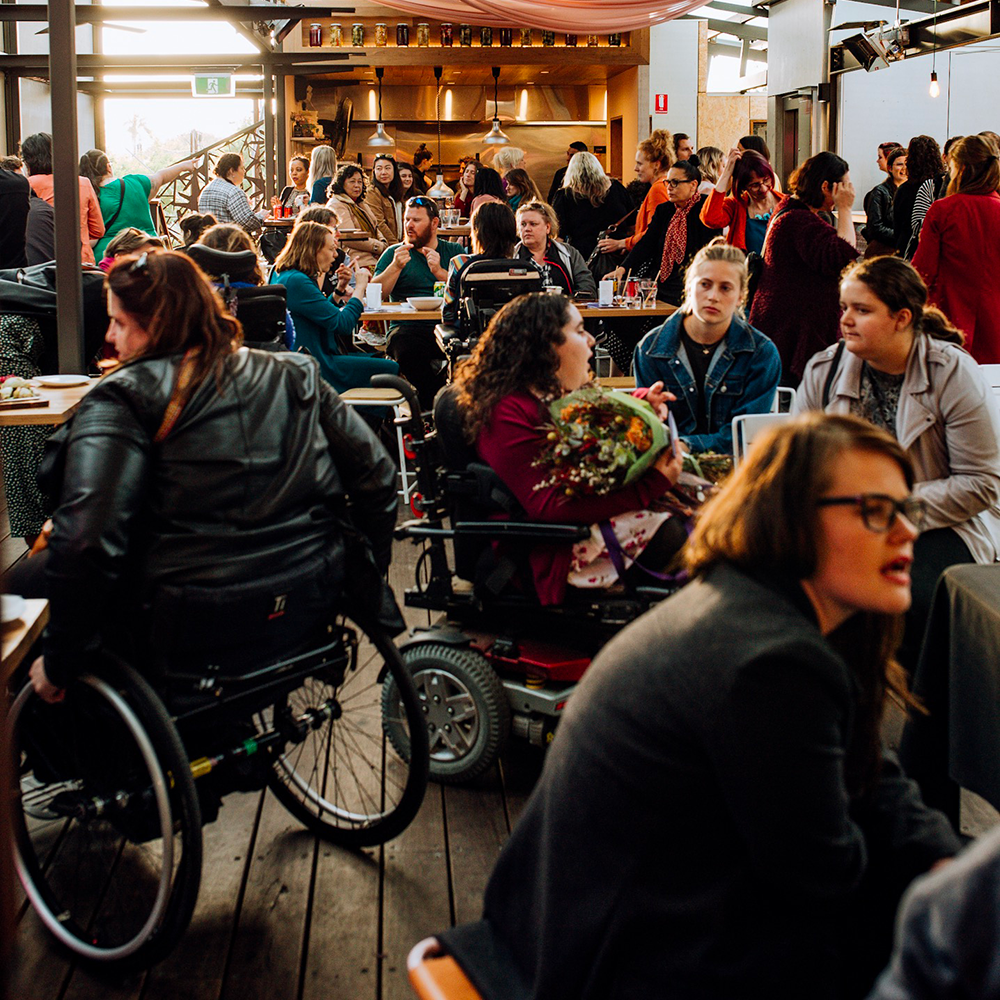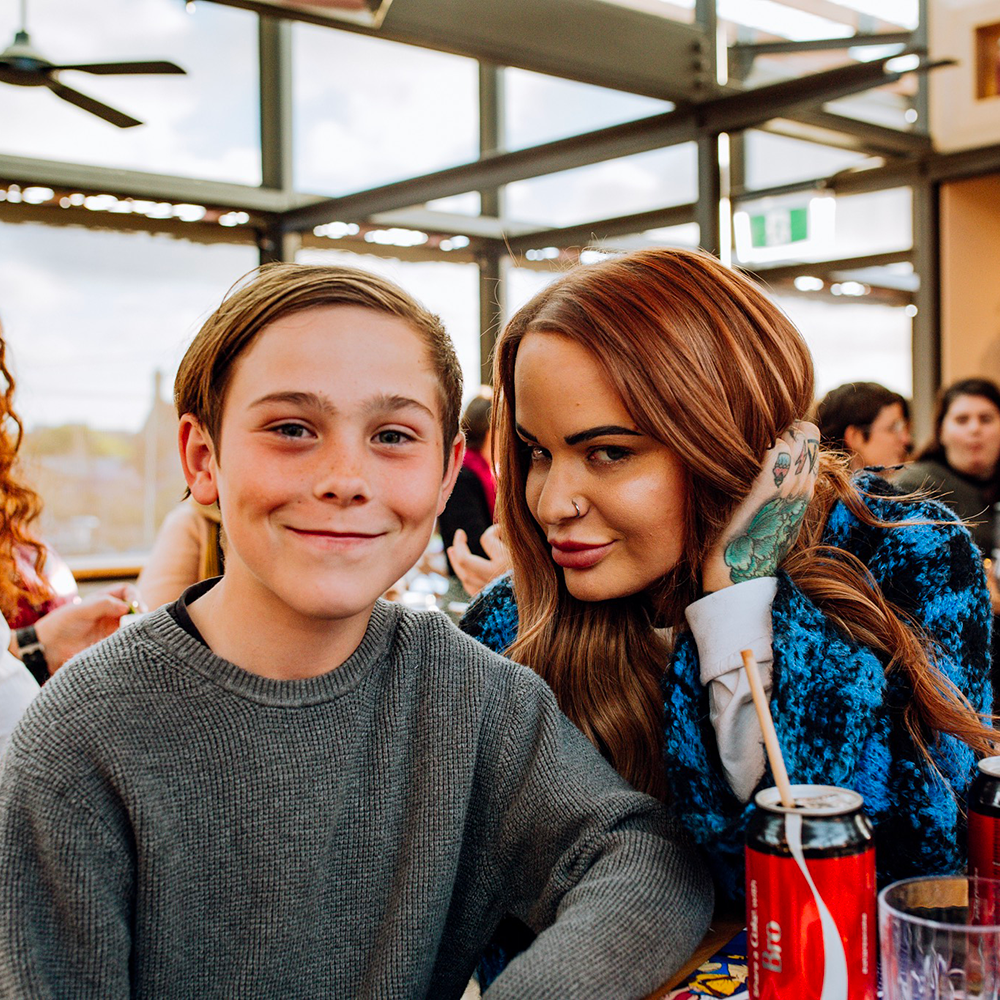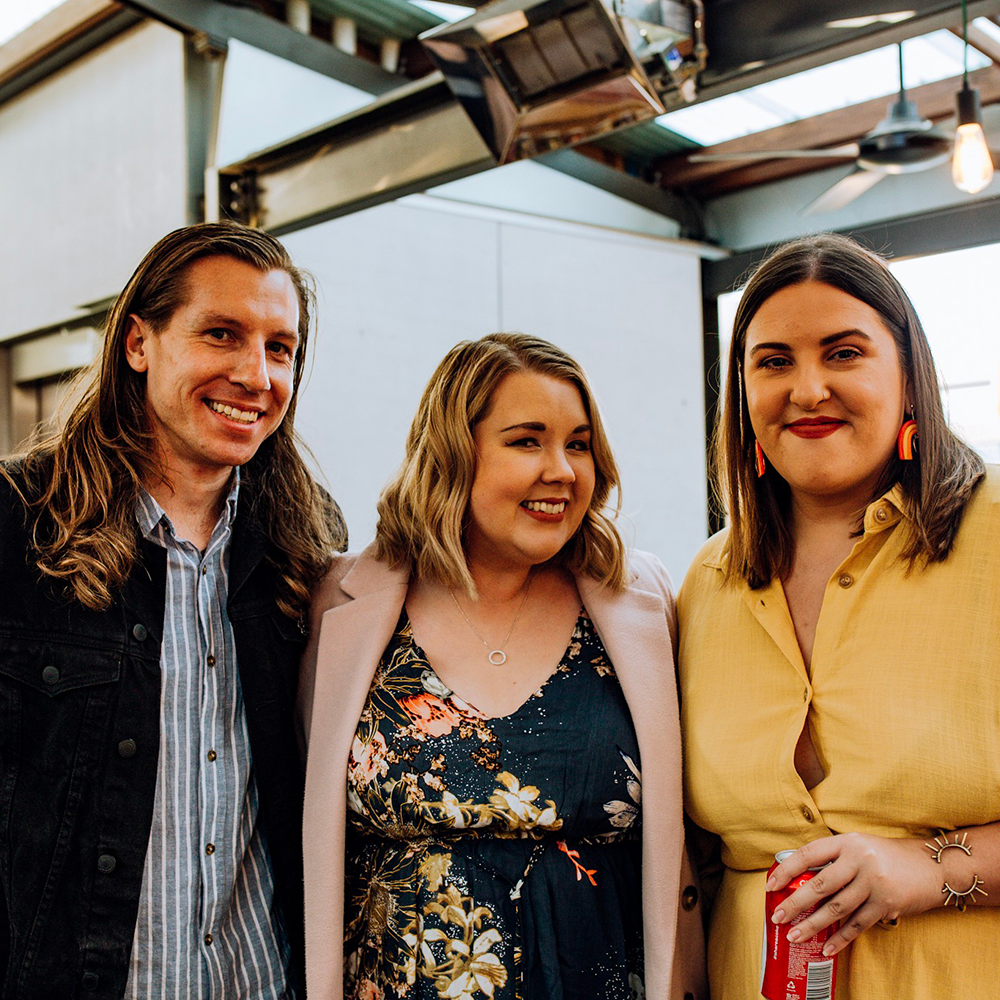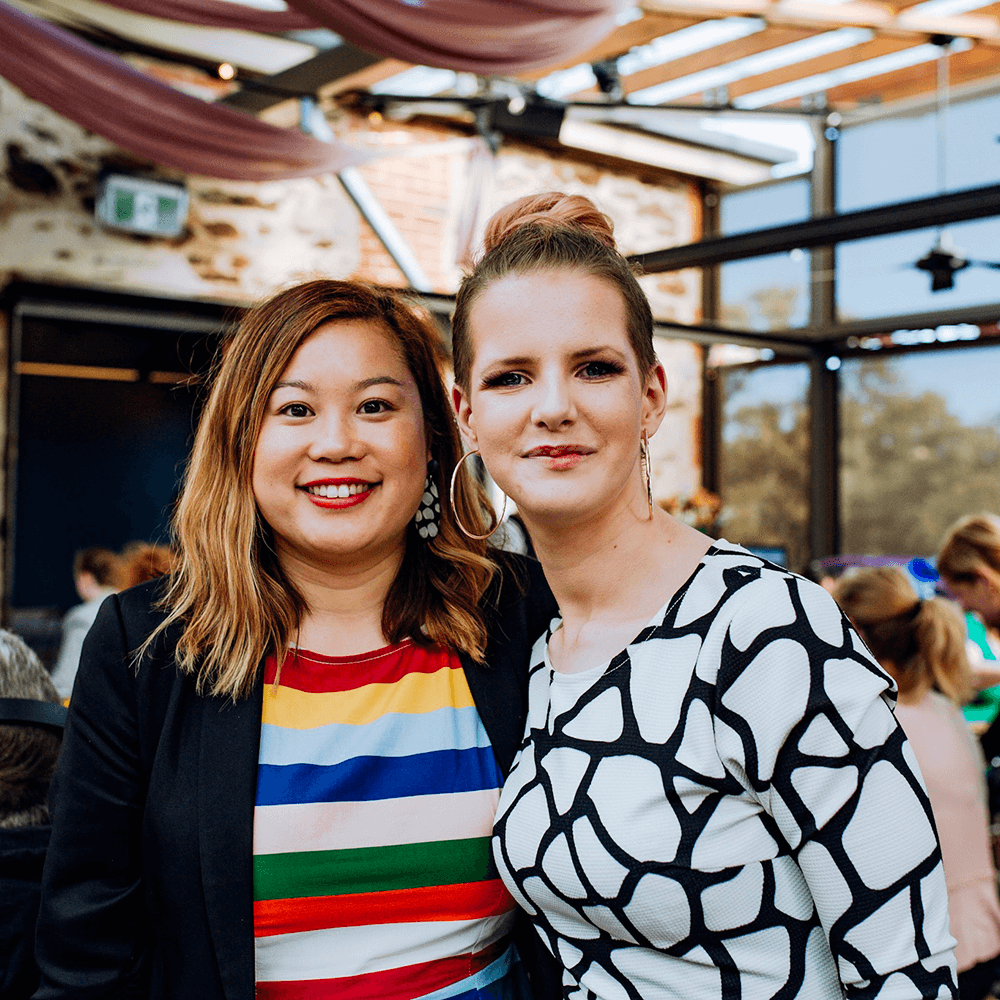International Day of People with Disability (IDPwD) is a United Nations sanctioned day celebrated on December 3. Its aim is to increase public awareness, understanding and acceptance of people with disability and celebrate their achievements and contributions.
Events celebrating IDPwD often centre around things being done ‘for’ people with disability. Realising this, YWCA Australia’s Y Connect Project consulted with women living with disability who expressed a desire for celebrations that are created for us, by us.
Working with this feedback, the Y Connect team of Belle Owen, who lives with disability, and Lisa Gascoigne, created a panel event featuring women and non-binary people living with disability who are heavily involved in advocacy in their fields.
In front of a sold-out crowd, the incredible MC Kelly Vincent led a panel made up of local women, Ellen Fraser-Barbour, Jo Agius, Chantal Bongiovanni and Eloise Dibden, through an enlightening and motivating discussion based on the theme for IDPwD 2019: The Future Is Accessible.
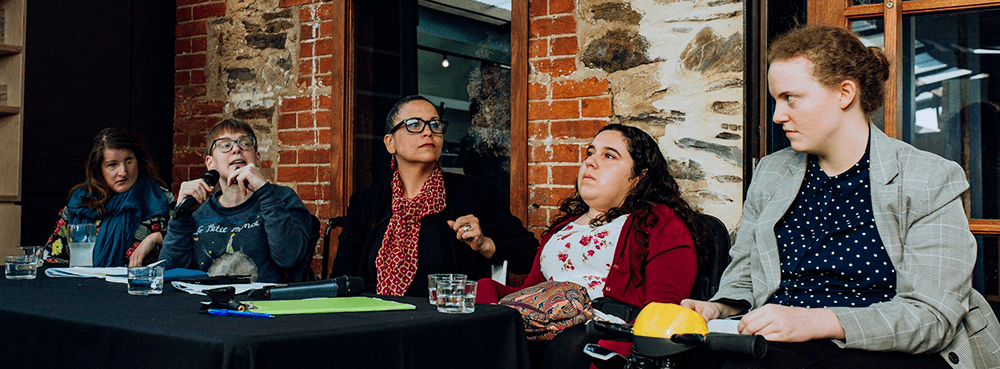
“I think there’s a much stronger sense of community as an adult and I’ve had the ability to tap into that. I think that a future is, obviously, one that is incredibly equal without prejudices and assumptions that are cast upon you from various people, but it’s also one that embraces people and allows them to be part of a community and from the get go so that people don’t feel as isolated and as alone as sometimes I’m sure I have felt and others have felt in the community.
I also think that [for an accessible future] we need to focus less on disabled people and how they can do better, and instead focus on coaching abled people to be good allies. That’s what I would like to see.”
Ellen Fraser-Barbour, on how her ideal future has changed as she’s grown up
Throughout the evening, panellists covered a vast variety of pertinent topics relative to their experiences as women living with disability. This included:
- access to healthcare, in particular reproductive health and sexual identity
- the Social versus Medical model of disability
- the need to educate health care professionals.
Importantly we need to stop perpetuating the myth that disability is something exclusively negative – especially when delivering new disability diagnosis.
“I think what you can do as allies is put a little time in understanding. Don’t be afraid to ask questions to develop that understanding. It’s about each individual, able bodied or disabled, taking that time to get to know other people’s experiences and then enabling and supporting people to have a voice and tell their story without taking over or dominating the narratives.”
Eloise Dibden, on working towards an accessible future
The panel discussed:
- the experience of domestic, community and institutional violence for women living with disability
- educational and employment opportunities and the barriers our panellists are trying to dismantle in these areas
- the importance of people living with disability being educated and re-educated on their rights
- having access to resources about what their rights are, as well as what to do and what the process looks like if those rights are violated.
“When I was younger, I was very, very isolated. I never met anyone like me, until I grew up and then I became much stronger within myself and advocating for myself. I’m indigenous, I’m gay, I couldn’t find anyone who had the same experience as me. I had to learn and find my way through by myself. There isn’t one particular role model I had but I’m strong within myself and I’m trying to influence the next generation of deaf indigenous people and be that role model for them.
I need to remind everyone about the social model of disability, which recognises that a lot of the time it is not our disabilities or differences in themselves that are a problem, the problem is the barriers that society erects as a response to the difference. It is really important to recognise the difference and to fight those barriers wherever and with whatever we can.”
Jo Agius, on looking for connection from the disability community as a child
One extremely relevant subject that arose was the impact of the climate crisis specifically on the disability community regarding access to information, evacuation planning and electricity access for those reliant on it.
“I believe that you don’t have to be changing the world to change the world around you and so I take a lot of inspiration from the people in my community. You know, who were just doing their everyday things, but might take up an issue or see an injustice and go, “Hey, I don’t like that”.
I did a lot of things when I was young to make sure that I didn’t appear too disabled because that was a real thing for me… As I’ve gotten older I’ve learnt to embrace disability. That comes with being in a community and being proud of the community that you’re in. “
Chantal Bongiovanni, on how she sees us all making changes and embracing the disability community
Having the right venue was crucial to set the tone. Woman-led business and the only pub in Adelaide to be loud and proud about their commitment to accessibility, Sparkke at the Whitmore’s rooftop bar was the perfect venue for our event. It was the ideal choice, not just for the disability community, but for allies and those who were eager to learn, to come together over food and drinks and passionate conversation.
The overwhelming success and positive feedback from the evening has made it clear that events celebrating IDPwD should always be created for us, by us. There are many women with disability who are leaders in their own right, and these are the women who will be leading YWCA’s IDPwD events.
Get Involved with Y Connect
The Y Connect Project is run in Adelaide. It offers opportunities for connection, confidence building and professional development to women living with disability.
Click here for more information on joining the project as a member or an ally.
If you would like to learn more about any of the topics mentioned in this blog, please let us know. We will have an upcoming series that dives deeper into intersectional disability issues.
